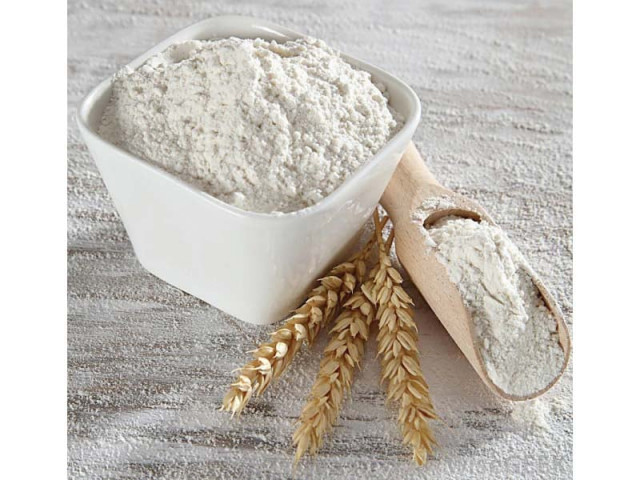Wheat prices: Punjab releases government wheat to flour mills
Govt decides to make the move so that flour mills could cut down their prices and provide some relief to the public

PHOTO: FILE
Following the start of wheat sales by the government, the price of a 40-kilogram wheat bag is expected to be slashed by Rs40 to Rs55. Meanwhile, the food department has also specified the permissible purchase quota for flour mills across all the districts of Punjab.
Talking to The Express Tribune, provincial food minister Samiullah Chaudhry said that the government has made it a top priority to minimise the economic burden of the masses.
“The wheat bag which costs Rs1,787 in the open market will now be available to flour mills at Rs1,375 per bag, while the government will grant Rs412 of subsidy per bag. The maximum price for a 20-kilogram bag of flour is Rs808 but we believe that flour prices in the market will be lower than that,” he said.
Based on the allocations, flour mills in Lahore will be issued 40 bags per roller body every day, while the divisional headquarter districts and other districts will be provided 35 and 30 bags per roller body, respectively.
Sky-high: Wheat prices in Punjab hit record highs
Per sources, flour companies with different brand names would generally be selling their 20-kilogram bags at prices ranging from Rs790 to Rs800. A few big brands, however, will keep their price at Rs808.
The provincial food department had formulated recommendations for the supply of government-stocked wheat to the flour mills before Eid holidays.
The chief minister and the chief secretary of Punjab have already approved the recommendations which, after the fulfilment of the specified formalities, will be implemented today and the supply of wheat will begin. At present, the Punjab food department has 700 flour mills registered for wheat supply quotas.
The flour mills have over 7,200 roller bodies out of which Lahore division has 108, Rawalpindi division has 148 and Gujranwala division has 104. According to sources, senior officials of the food department have set up three categories for wheat quota based on the available stock after extensive consultation with all stakeholders.
The flour mills districts of Lahore will be allowed a daily wheat supply of 40 bags per roller body while Sahiwal, Bahawalpur, Dera Ghazi Khan, Multan, Faisalabad, Gujranwala, Sargodha and Rawalpindi will have a provision of 35 bags per roller body. On the other hand, the remaining 27 districts of the province will be allocated a quota of 30 bags per roller body.
All flour mills registered with the food department will be able to procure wheat for their functional roller bodies under their specified quota. The food department has purchased the wheat stock at Rs1,300 per maund while the government has to bear an additional cost of Rs487 per bag for the storage and maintenance of the procured stocks.
Pakistan Flour Mills Association group leader Asim Raza appreciated the step taken by the government but added that the provision of subsidised flour should have kick-started before Eid. He also complained about the increase in the cost of electricity which, in turn, impacts the price of wheat.
“We want to divert the government’s attention to the move made by the federal minister for energy and power resources, who has struck off flour mills from the Prime Minister Relief Scheme that offered us subsidised electricity rate of Rs3 per unit at a time when electricity prices have soared a lot,” he said.
He added that after the changes, the price of electricity for flour mills has shot up to Rs6 per unit.
“The mill owners are extremely concerned about the increasing costs of production, therefore, they demand from the prime minister and the chief minister to take notice of the developments and take appropriate action,” Raza concluded.
Published in The Express Tribune, August 16th, 2019.



















COMMENTS
Comments are moderated and generally will be posted if they are on-topic and not abusive.
For more information, please see our Comments FAQ